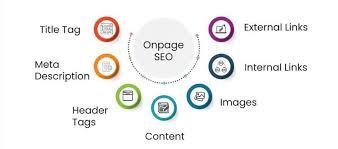In a world where a digital presence is no longer optional, selecting the right best website builders is crucial for individuals and businesses alike. Whether you're an entrepreneur launching an online store, a freelancer showcasing your portfolio, or a blogger sharing your voice, the right tool can make or break your digital debut.
This guide explores the top website builders of 2025, breaking down their unique strengths to help you make a choice that fits your vision—not just your budget.
1. Wix – Creativity Without Constraints
Best for: Designers, small businesses, and creative professionals
Why it stands out:
Wix continues to dominate with its powerful drag-and-drop editor, giving users full control over every pixel. Its AI-driven design assistant can even create a personalized website in minutes based on your preferences.
Notable features:
-
900+ designer-made templates
-
Wix App Market for added functionality
-
Built-in SEO and marketing tools
Drawback:
Too much customization can overwhelm beginners.
2. Shopify – The King of E-Commerce Castles
Best for: Online stores and retail businesses
Why it stands out:
If selling products online is your primary goal, Shopify is hard to beat. With thousands of e-commerce plugins and deep integration with POS systems, it's made for scale.
Notable features:
-
Multi-channel sales support (Instagram, Amazon, etc.)
-
Inventory management made simple
-
Extensive theme store
Drawback:
Transaction fees unless using Shopify Payments.
3. Squarespace – Where Style Meets Function
Best for: Artists, photographers, bloggers
Why it stands out:
With a strong focus on aesthetics, Squarespace is perfect for those who want a sleek, modern website with minimal effort. It's an all-in-one solution that balances beauty with robust features.
Notable features:
-
Award-winning templates
-
Built-in analytics
-
Blogging and podcasting tools
Drawback:
Less flexible when it comes to third-party integrations.
4. Webflow – For Designers Who Think Like Developers
Best for: Advanced users, freelancers, and agencies
Why it stands out:
Webflow bridges the gap between design and development. It allows designers to build responsive websites without writing code but still exports clean, production-ready HTML, CSS, and JavaScript.
Notable features:
-
Visual CMS editor
-
Animation and interaction controls
-
Full design-to-deployment workflow
Drawback:
Steeper learning curve than typical builders.
5. Zyro – Simplicity Meets Speed
Best for: First-time users, solopreneurs
Why it stands out:
Zyro is a newer player that’s gaining traction for its minimalist approach. It’s affordable, fast, and includes AI tools for content creation, heatmaps, and even logo generation.
Notable features:
-
AI Writer and AI Heatmap
-
Ultra-fast loading speeds
-
Budget-friendly plans
Drawback:
Limited third-party app ecosystem.
6. WordPress.com – The Content Powerhouse
Best for: Bloggers, content-heavy sites, and SEO-focused users
Why it stands out:
With its roots in blogging, WordPress.com offers unmatched content management capabilities. The Gutenberg block editor brings modern usability to this content-first platform.
Notable features:
-
Massive theme and plugin library
-
Built-in Jetpack tools
-
Strong SEO infrastructure
Drawback:
Limited customization compared to self-hosted WordPress.org
Choosing the Right Builder: It’s About Fit, Not Fame
When selecting a website builder, ask yourself:
-
What is the primary purpose of the site?
-
Do you value simplicity or customization?
-
What’s your budget now—and as you scale?
There’s no one-size-fits-all solution, but fortunately, the market offers powerful tools for every need. The best website builder for you is the one that aligns with your goals and technical comfort level.
Final Thoughts
In 2025, building a website doesn’t require a computer science degree. web design company Whether you're creating a personal blog or launching an e-commerce empire, the right website builder is out there—waiting to turn your vision into a live, beautiful reality.
Visit Us: https://www.a1jinternational.com/




